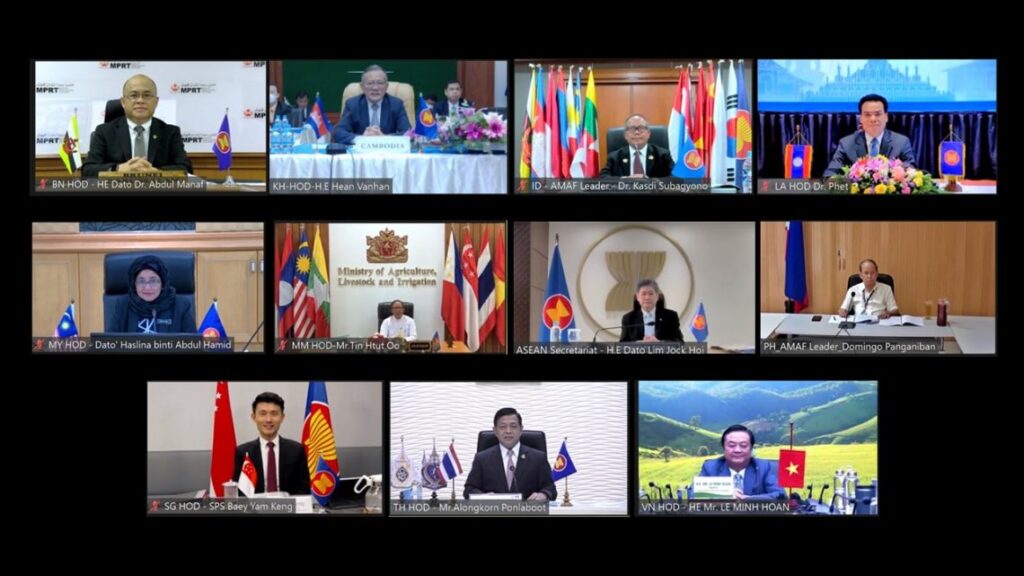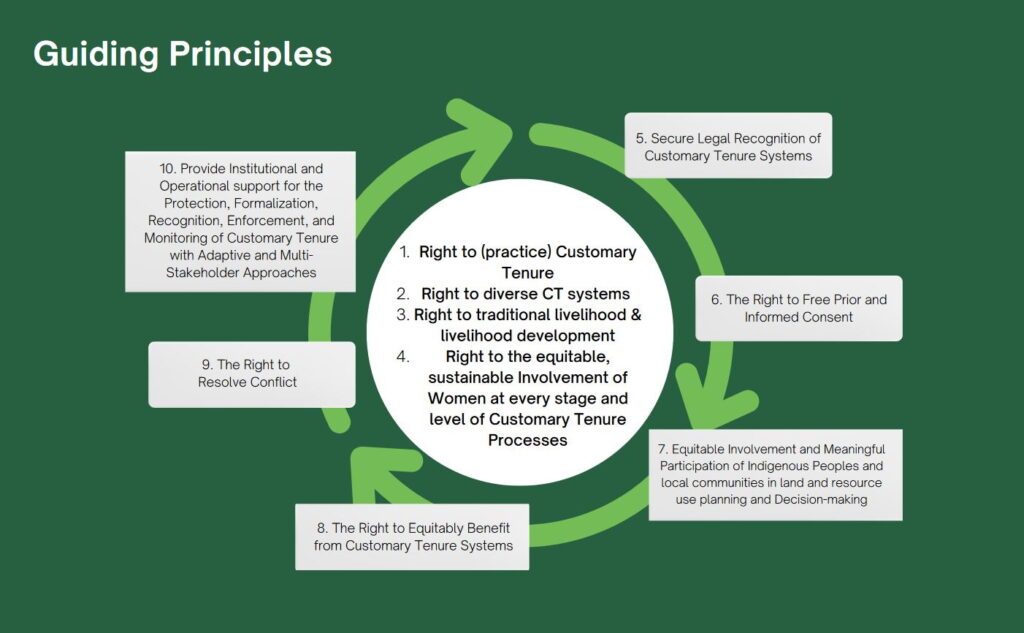ASEAN Ministers adopt guidelines on customary forest tenure recognition

The ASEAN Ministers on Agriculture and Forestry (AMAF) formally adopted the ASEAN Guidelines on Recognition of Customary Tenure in Forested Landscapes during their 44th meeting last 25 October 2022.
The Guidelines aim to establish a comprehensive regional approach to the recognition of customary tenure by establishing an ASEAN-wide standard for the member states to pattern their national policies to. The Guidelines also specifically facilitates a framework for Indigenous Peoples and Local Communities (IPLCs) to participate in the decision-making at the national level of each member state.
Customary tenure is a set of rules, practices and norms defined over time by a community or communities that govern the allocation, use, access, exclusion, and transfer of land, forests, fisheries, and other natural resources.
Aside from the stated goals, care is also given by the Guidelines to ensure that the approaches are gender responsive, socially inclusive, and supportive of transgenerational equity.
NTFP-EP supported the ASEAN Working Group on Social Forestry and the ASEAN Secretariat to facilitate the formulation of the guidelines, with support from the Mekong Region Land Governance Project and the Green Livelihoods Alliance.
Aside from government offices and policymakers, the Guidelines are also intended to be used as a reference by the private sector, civil society, and academic institutions implementing activities, research or development on the customary lands and territories of IPLCs as well as their natural resources.

The guidelines include the following 10 inter-linked guiding principles:
1. The right to customary tenure
2. The right to local and cultural diversity in customary tenure systems
3. The right to traditional livelihoods and livelihood development
4. The right to equitable and sustainable involvement of women
5. Secure legal recognition of customary tenure systems
6. The right to free, prior, and informed consent
7. Equitable involvement and meaningful participation of indigenous peoples and local communities in land and resource use planning and decision-making
8. The right to equitably benefit from customary tenure systems
9. The right to resolve conflict
10. Provide institutional and operational support for the protection, formalization, recognition, enforcement, and monitoring of customary tenure with adaptive and multi-stakeholder approaches
The development of the Guidelines began with the 24th ASEAN Senior Officials on Forestry meeting in 2021, who approved its creation upon the recommendation of the ASEAN Working Group on Social Forestry. This is in recognition of the ASEAN’s commitment towards sustainable forest management and ensuring forest resources provide socioeconomic benefits while maintaining their ecological stability.
Prior to the adoption of the Guidelines, there has been no specific policy framework at the ASEAN regional level dealing with the recognition of customary tenure. This has caused problems for IPLCs, who often have to contend with domestic state-level laws that are not fully aligned with the diverse and complex land use practices of IPLCs.
“Before, there has been slow progress in recognizing the lands designated and owned by Indigenous peoples and local communities in ASEAN countries,” said Dazzle Labapis, NTFP-EP Asia’s programme officer for tenure rights and governance.
“The Guidelines are a response to the clear gaps in realizing customary forest recognition. It also helps contextualize the national positions of indigenous knowledge systems and practices and promotes existing forest stewardship, biocultural diversity and sustainable practices,” Labapis added.
For its part, NTFP-EP acknowledges the support of the ASEAN Working Group on Social Forestry, the ASEAN Secretariat, Asia Indigenous Peoples Pact, Asian Farmers Association, Mekong Region Land Governance Project Secretariat, and the writing leads Mr. Thomas Worsdell and Atty. Edna Maguigad. Appreciation is also shared to the Regional Alliance on Customary Tenure Recognition, the Country Customary Tenure Alliance in CLMV, and all the regional policy dialogue participants who provided inputs and comments to the early versions of the guidelines.
The full text of the Guidelines is available at the ASEAN website.



